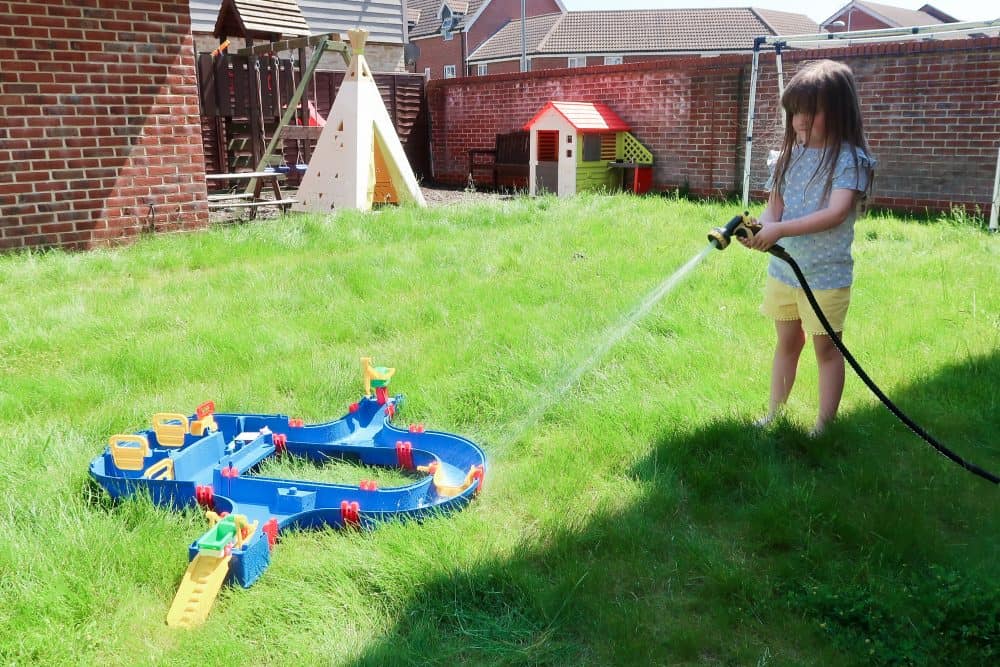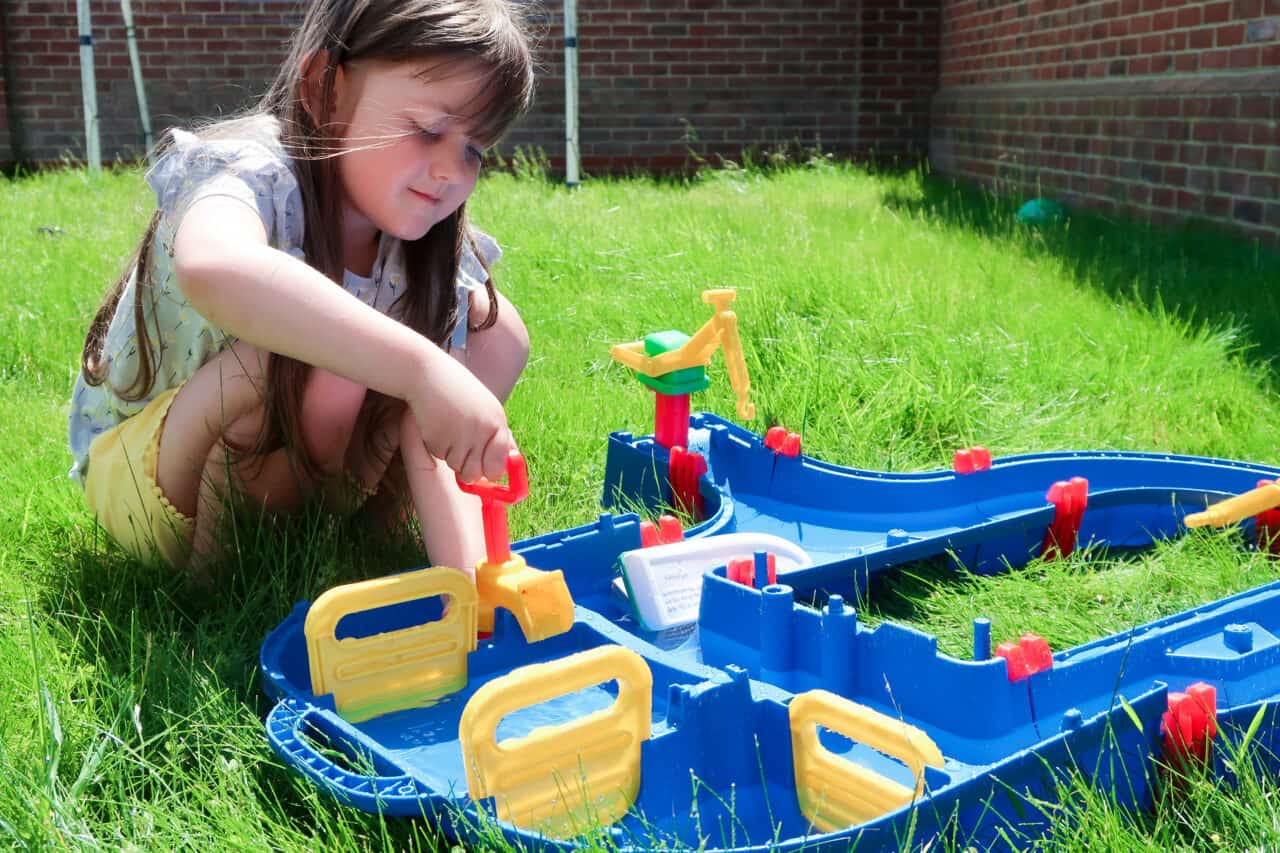AD | Gifted / Affiliate Links
The one thing we can all struggle with when it comes to our children is stimulating them and finding activities that are not only suitable for their age but is also fun and interesting for your child. In some cases, you also want to encourage independence with play without the need of having you involved. However, what is suitable and what sort of activities can you try? Water play is one of those activities that work well with children and could be a great way to keep them occupied.
However, while you may agree that water play is something your child will love, you might be wondering how to go about creating an engaging activity involving water, what will be suitable for your child, and even the benefits of making this effort. With that in mind, here are some of those questions answered. Hopefully, if you feel more informed, you may be more inclined to give it a try yourself.
What ages are suitable for water play?
In truth, most children, no matter what their age, will engage in a water play activity. Babies and toddlers love the feeling and difference from a sensory point of view. Younger children like the idea of playing with water for other reasons and even older children will experiment, create science experiments or make potions using water. However, you will likely get the most out of a water play activity if your child is aged from about 3-6 years old.
The benefits that we discuss in more detail later in the post will be more relevant for the younger age group, but don’t deter from using water in activities for older children. You could just look at adding more to it such as math and science aspects.

How can you encourage water play?
Encouraging water play can be done in many different ways. You might seek out activities online or just simply get a jug and a cup. Sometimes the simplest activities are the ones that work out the best.
Setting up your own activity
One of the easiest ways to encourage water play is to set up your own activity. The beauty of this is that you can use anything you have in your home. Cups, jugs, pans, warm water, cold water, and even ice cubes. You can also use your own activities and incorporate bubbles and food colouring. There are plenty of ideas online if you are a little stuck as to what to do.
For younger children, you could use a tuff tray for activities, which is a great investment for other messy play and sensory activities. Even grabbing a paintbrush and water and allowing your children to paint the house or fence with it. These simple activities can keep children occupied for ages. Older children may be happy with bowls and jugs, and simply transferring liquid from one entity to another.
Investing in water play games or accessories to help
If your child is really interested in water play, then you may want to look at investing in water play games or accessories that can be used. It might be that you look at the AquaPlay SuperSet where the water can be used as part of a game with boats. You could also invest in other things that could be useful for water play, such as a water play tray. Many of these have tools that are used when you add water to it and create small waterfalls and change the way the water looks.

Benefits of children embracing water play
Now that you know how to start with water play, you might be interested to know what your child will get out of it and how it can help them. So let’s cover some of the major benefits when it comes to children embracing water play.
Develops fine motor skills
Water play can give you plenty of opportunities to encourage the development of fine motor skills within your child. It can also help with things such as hand-eye coordination. This is because children can develop these skills through pouring, stirring, squirting, and squeezing. It also helps them to concentrate such as being able to transfer liquid from one cup to another, for example. It is a great sensory activity that keeps children entertained, and while doing so, they will strengthen their hands and wrists.
Encourages problem-solving skills
During water play, your child will start to explore a substance and make some discoveries about it. Investigating different outcomes through play, they will learn to problem solve and figure things out. It can also help as they observe how things float. Such as certain things flowing whereas others that are heavier may sink. They can learn to understand this and solve different issues that they come up against.

Language development
The great thing about water play, especially when they are playing with others, is that it can encourage their language and speech. The conversations they will have as they discuss the problems they encounter or the things they discover. However, don’t worry if they aren’t playing with someone too often. They will still benefit in this way as they may commentate on what they are doing or discuss things with you.
Enhances social skills
The same as with language development, playing with someone in a water play activity will help enhance social skills. They may learn to ask to share things, borrow something or learn to give things to someone else.
Learning in maths and science
Finally, water play can be associated with science and maths in many different ways. For maths, they can learn about quantities and with science, they can learn about different materials and how water can have an effect on them. You might be surprised exactly what sort of subjects and learning opportunities can work well within a water play activity. As they get older you can add more opportunities and associate them with what they may be learning at school.

Hopefully, this can give you some encouragement on introducing water play with your children and how the activities could benefit your child.































